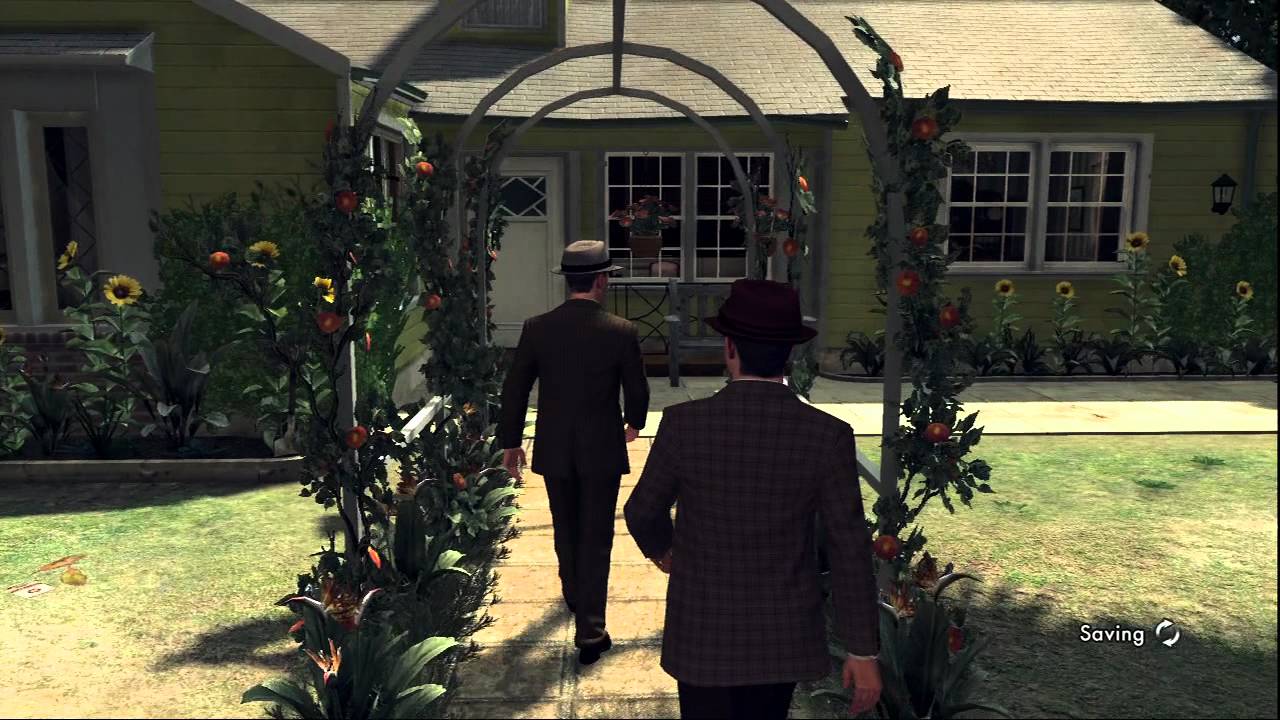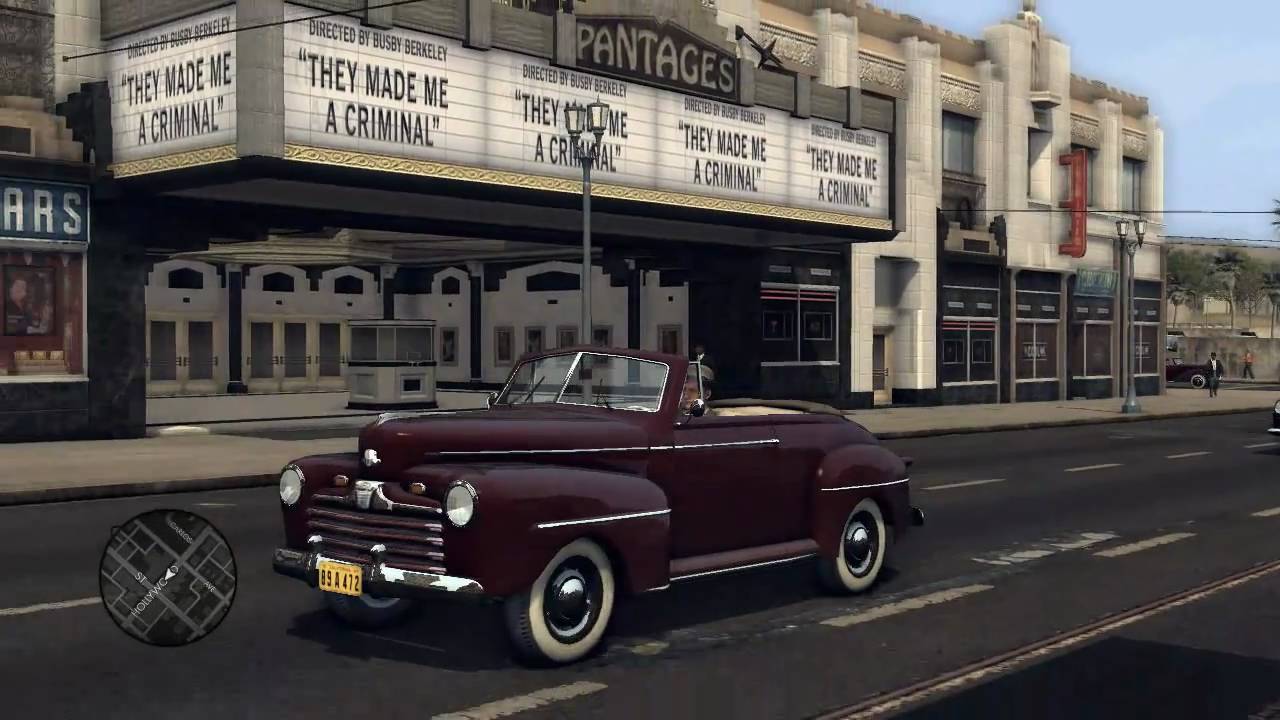Speak Up, L.A. Noire

This article is part of a series called Shut Up, Videogames, in which critic Ed Smith invites games old and new to pipe down, or otherwise. In this edition, he looks at Rockstar’s contentious 2011 detective story L.A. Noire.
There seem to be two types of “good war games”: condescending, cheap commentaries on violence, a la Spec Ops: The Line, and nihilistic but technically flawless spectacle, i.e. Call of Duty. One way or the other, gaming has become so jaded that only sweeping, generalised politics filter through—Spec Ops appeases those people despairing, understandably, about mainstream shooters, while Call of Duty, Battlefield, and the rest gratify anyone who’s too far gone to care.
Partly this is why the best war game ever made—L.A. Noire—has been overlooked. It doesn’t cast any broad observations about war, either real or simulated, nor is it spectacular, at least not in the conventional videogame sense. L.A. Noire deals primarily with the effects of war post-script, how in the aftermath of victory, a person and a country are both changed—how as much as glory, there is tragedy, as much as a nation mourns its losses and swears not to make the same mistakes again, it finds fresh opportunities for expansion and avarice.
the legend of war is preferred to reality
Martin Walker, the broken and ultimately insane protagonist of Spec Ops: The Line, is nakedly a man changed by war. By contrast, Cole Phelps of L.A. Noire seems a stand-up, button-down figure, an upstanding detective played to straight-edge perfection by Aaron Staton. But look again. Despite receiving the Silver Star for valour, he flaked during the battle of Sugar Loaf Hill, letting his troops die around him while hiding in a foxhole. In the flashbacks to his time in the Army, it’s clear Phelps is disliked by his men—rather than an authoritative and experienced officer, Staton’s performance makes Phelps seem smug and officious. His by-the-book leadership stems not from personal principles, but cowardice and a reluctance to make decisions. That Phelps is later heralded a war hero—that his ascension through the ranks of the LAPD is fuelled by his reputation as a soldier—is one of the subtle ways L.A. Noire undermines any mythologizing of war. Spec Ops crescendos with images of Walker mad, violent and bloody. It hammers back, cack-handedly, the idea that soldiers and by extension videogame protagonists are not necessarily the heroes we think. L.A. Noire plays that card more discretely. Phelps, a coiffured, upstanding front-man for the LAPD, is in reality a petty, small and ultimately ineffectual soldier. His career as a detective is emblematic of how, especially in videogame narratives, the legend of war is preferred to reality.

Phelps’ story also underpins the flipside of 20th century, American ways of life. At work, especially when he’s alongside boozy detective Rusty Galloway, Phelps is sanctimonious and pristine, criticising the LAPD’s lax attitude to officers drinking on duty. And when we first see him, in L.A. Noire‘s opening montage, he’s dressed in his patrolman’s uniform, waving goodbye to his wife on the steps of an idyllic suburban home. Outwardly, Phelps represents law, morals and clean nuclear living, but in his private moments, he stalks lounge singer Elsa Lichtmann at The Blue Room nightclub, and the two eventually start an affair. The “American Century”, which Phelps reflects on in L.A. Noire‘s closing cutscene, might be characterised by the military and financial power the United States wielded following its victory in World War 2. But on the personal level, post-war America was the place where a man could own a house, work a job, raise a family—Americans had fought for the right to lead wholesome lives.
Phelps’ affair, and eventual split from his wife and children, represent the inherent falseness and frailty of that suburban ideal. On the surface, Phelps is very much an American Century guy and a product of Allied victory. But beneath, he’s collapsing. At the end of his work on the LAPD vice desk, Phelps’ adultery is revealed, and he’s demoted to arson. His first case is investigating a house fire, wherein all of the occupants—husband, wife and children—were killed. Just as Phelps’ slice of the American way of life is destroyed by his affair, this house, this family, this picturesque example of post-war America is gutted by fire—you see Phelps literally picking through the remnants of the American ideal. Safe and comfortable domestic living, ostensibly the greatest spoil of America’s victory in World War 2, feels ultimately vulnerable. Where war games often climax with triumph, and the narrative implication that everything will be all right now, L.A. Noire characterizes victory in war as far from the wholesale foundation for a better way of life.
victory in war, and the glory espoused by propaganda and videogames, are never absolute
Courtney Sheldon, the medic from Phelps’ unit in Okinawa, also personifies that idea. Returning from war aboard the SS Coolridge, he hears about Phelps’ graduation to the LAPD, and along with a group of other Marines reflects on his own job prospects. “Can’t believe I went through Hell in Okinawa just to go back to being a washing machine mechanic,” remarks one of the soldiers. “It doesn’t have to be that way guys,” replies Sheldon. He outlines a plan to steal a surplus of Army issue morphine and sell it on the streets, saying that he wants “the guys who fought for a better future to have some part of it.”
He’s emblematic of how victory in war, and the glory espoused by propaganda and videogames, are never absolute. As well as Sheldon, who knows that, despite pervading mythology, the United States’ victory in WW2 does not guarantee a better hereafter, in L.A. Noire you encounter many people for whom the American way of life is failing. The vice cases in particular centre on LA’s poor, black underclass, people who in lieu of social opportunity are selling drugs to survive. Phelps’ home life signifies the infirmity of the post-war domestic ideal. Sheldon’s anxieties, the necessity with which he discusses the morphine theft and the several embattled black and homeless characters you meet in L.A. Noire represent the financial and social shortcomings of America’s century. Just as the portrait of domestic, picket fence living doesn’t take into account human fragilities and Phelps’ wandering sexual desire, the unbridled capitalism which America boasted, and was left to openly explore after World War 2, wasn’t and isn’t a substitute for social policy, and ultimately dispenses with many American citizens.

The Suburban Redevelopment Fund, which in L.A. Noire is advertised as an initiative to provide affordable housing for returning GIs, is revealed eventually to be a pork barrel scheme, whereby the houses are built using shoddy materials and the rest of the money is pocketed by stakeholders. On a smaller level, the Insta-Heat central heating system, which Phelps encounters at various crime scenes, is sold as a cheap, effective household solution, but is in fact prone to fault and likely to explode. Various financial systems, and artefacts of the capitalistic pursuit of ownership, comfort and status, are characterised in L.A. Noire as inherently open to corruption. The monetary, material and personal freedoms supposedly afforded America by its victory in World War 2, and after establishing of itself as the world’s leading superpower, are mitigated by L.A. Noire throughout. In these various, subtle instances, the game undermines the idea that success in war leads to betterment, morality and the establishing of an improved status quo. Contrary to pervading war game narratives, everything is not better post-victory.
By that measure, L.A. Noire is the most important war game in recent history. Ostensibly a detective story, it investigates the greatest crimes committed by videogames: the conflation of killing and winning, and the narrative insistence that victory in war equals personal and social perfection. War in L.A. Noire leads not to validation, but to neuroses, cupidity and disenfranchisement. Without gratuitous imagery or writing, the sense of achievement typically associated with violence in games is constantly attenuated, and the apparent beneficiaries of war, in new and old ways, continue to struggle.



